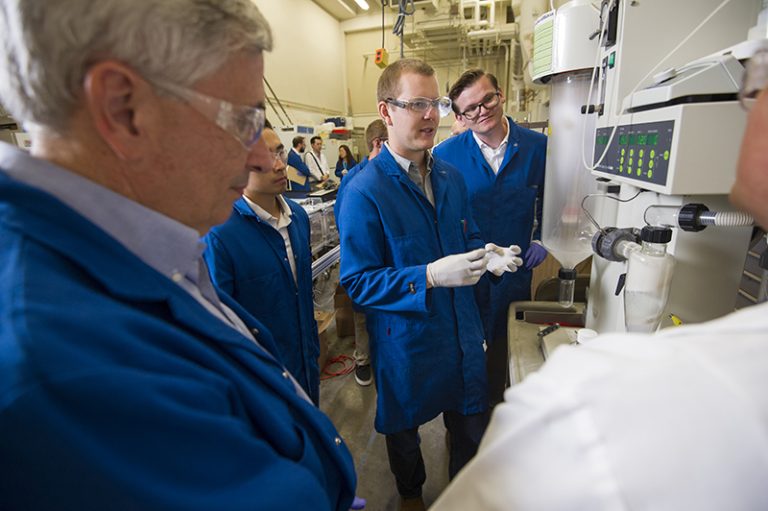UC Davis to Lead New Artificial Intelligence Institute for Next Generation Food Systems
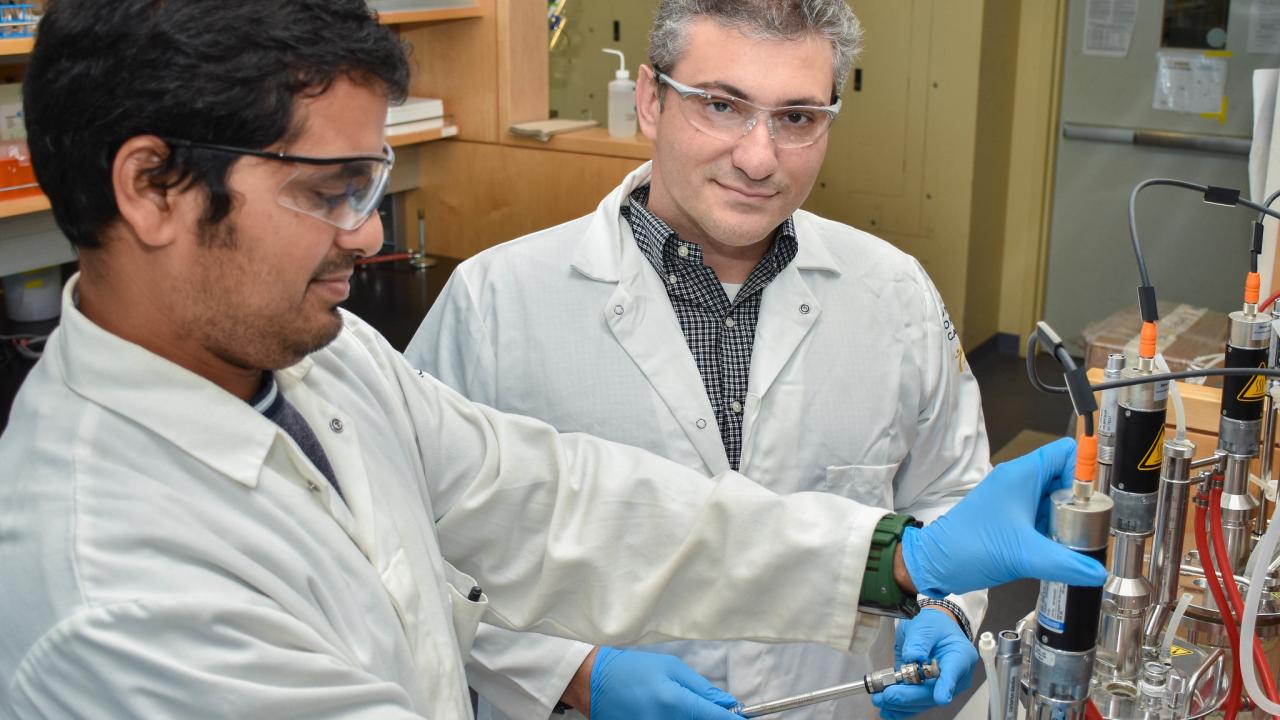
The University of California, Davis, has been awarded $20 million as part of a multi-institutional collaboration to establish an institute focused on enabling the next-generation food system through the integration of artificial intelligence, or AI, technologies. The award is part of a larger investment announced today (Aug. 26) by the National Science Foundation, or NSF, in partnership with several federal agencies — distributing a total of $140 million to fund seven complementary AI research institutes across the nation.
The AI Institute for Next Generation Food Systems, or AIFS, aims to meet growing demands in our food supply by increasing efficiencies using AI and bioinformatics spanning the entire system — from growing crops through consumption. This includes optimizing plant traits for yield, crop quality and disease resistance through advances in molecular breeding, in addition to minimizing resource consumption and waste through development of agriculture-specific AI applications, sensing platforms, and robotics. The team’s plan also intends to benefit consumers through enhancements to food safety and development of new tools to provide real-time assessment of meals that can guide personalized health decisions.
‘Paving the way to a transformation’
“The food system is ripe for disruption, with many advances over the past decade paving the way to a transformation,” said Ilias Tagkopoulos, professor in the UC Davis Department of Computer Science and Genome Center, and director of the new institute. “AI will serve as both the enabling technology and the connective tissue that brings together these elements and catalyzes this transformation to a safer, fairer and more efficient food system for the next generation.”
Other principal investigators from UC Davis include Nitin Nitin, professor in the Departments of Biological and Agricultural Engineering and of Food Science and Technology; Mason Earles, assistant professor in the Departments of Viticulture and Enology and of Biological and Agricultural Engineering; and Xin Liu, professor in the Department of Computer Science.
The institute has been designed to be inclusive, fostering collaborations to develop open-source AI solutions across the food system. Given food’s fundamental role in human health and well-being, coupled with its far-reaching impacts on the national economy and environment, the institute will bring together more than 40 researchers from six institutions: UC Davis; UC Berkeley; Cornell University; the University of Illinois, Urbana-Champaign; UC Agriculture and Natural Resources; and the U.S. Department of Agriculture’s Agricultural Research Service.
Engagement and collaboration
In addition to the scientific and technical objectives, the institute’s charter includes a significant focus on education, outreach and collaboration.
“Our success won’t only come from breakthroughs and innovation of new technologies and systems, but also a ready workforce, an engaged public and collaboration with industry partners to solve real challenges,” said Gabriel Youtsey, chief innovation officer at UC Agriculture and Natural Resources.
The institute’s plan includes programs specific for K-16 education, college internships and fellowships, curriculum enrichment, broadening participation and diversity, corporate engagement, and knowledge transfer. These programs will be bolstered by leveraging existing platforms such as UC Davis’ Innovation Institute for Food and Health, CITRIS Banatao Institute and Agriculture and Natural Resources’ Verde Innovation Network for Entrepreneurship, or VINE. Additional efforts are planned in alignment with NSF’s call to ensure AI systems are secure, safe, ethical and fair through design, accountability and transparency.
Development of the proposal for the award was facilitated by the Interdisciplinary Research and Strategic Initiatives division of the Office of Research at UC Davis. The institute is designated as a special research program under the administration of the Office of Research.
Assembled expertise offers hope
“As with many of our world’s greatest challenges, addressing the critical needs in our food supply requires extensive collaboration between experts from different disciplines,” said Prasant Mohapatra, vice chancellor for research at UC Davis. “The collection of expertise assembled for this new institute brings much hope for transformative advancements to be realized.”
Funding for the institute is provided by the U.S. Department of Agriculture’s National Institute of Food and Agriculture as part of a larger initiative led by the U.S. National Science Foundation to establish new artificial intelligence institutes to accelerate research, expand America’s workforce and transform society in the decades to come. The NSF AI institutes will collaborate with industry and government to advance the frontiers of AI as well as a range of science and engineering disciplines and societal sectors that stand to benefit from AI innovation.
“Recognizing the critical role of AI, NSF is investing in collaborative research and education hubs, such as the USDA-NIFA AI Institute for Next Generation Food Systems anchored at UC Davis, which will bring together academia, industry, and government to unearth profound discoveries and develop new capabilities advancing American competitiveness for decades to come,” said Sethuraman Panchanathan, director of the National Science Foundation. “Just as prior NSF investments enabled the breakthroughs that have given rise to today’s AI revolution, the awards being announced today will drive discovery and innovation that will sustain American leadership and competitiveness in AI for decades to come.”
Media Resources
Ilias Tagkopoulos, Genome Center, 530-752-4821, [email protected]
AJ Cheline, Office of Research, 530-752-1101, [email protected]
Andy Fell, News and Media Relations, 530-752-4533, [email protected]



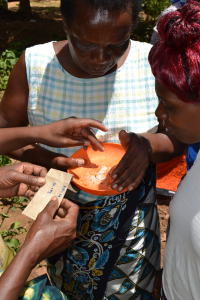 College of Agricultural & Environmental Sciences at UC Davis and the chief agricultural officer at Mars — has chartered an ambitious goal to map and make public the genomes of 101 indigenous African food crops. The genomic data gathered on crops will help plant breeders improve the nutritional content, productivity and resilience of Africa’s most important food resources.
College of Agricultural & Environmental Sciences at UC Davis and the chief agricultural officer at Mars — has chartered an ambitious goal to map and make public the genomes of 101 indigenous African food crops. The genomic data gathered on crops will help plant breeders improve the nutritional content, productivity and resilience of Africa’s most important food resources.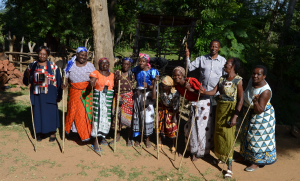 Daniel Adewale, plant breeder with the Ondo State University of Science and Technology in Okitpupa, Nigeria, graduated last year. He is using the skills he learned to improve the African yam bean, increasing its essential amino acid content and reducing its cooking time. “By helping breeders improve these forgotten crops, I believe the African Orphan Crop Consortium will cure malnutrition in Africa,” Adewale said.
Daniel Adewale, plant breeder with the Ondo State University of Science and Technology in Okitpupa, Nigeria, graduated last year. He is using the skills he learned to improve the African yam bean, increasing its essential amino acid content and reducing its cooking time. “By helping breeders improve these forgotten crops, I believe the African Orphan Crop Consortium will cure malnutrition in Africa,” Adewale said.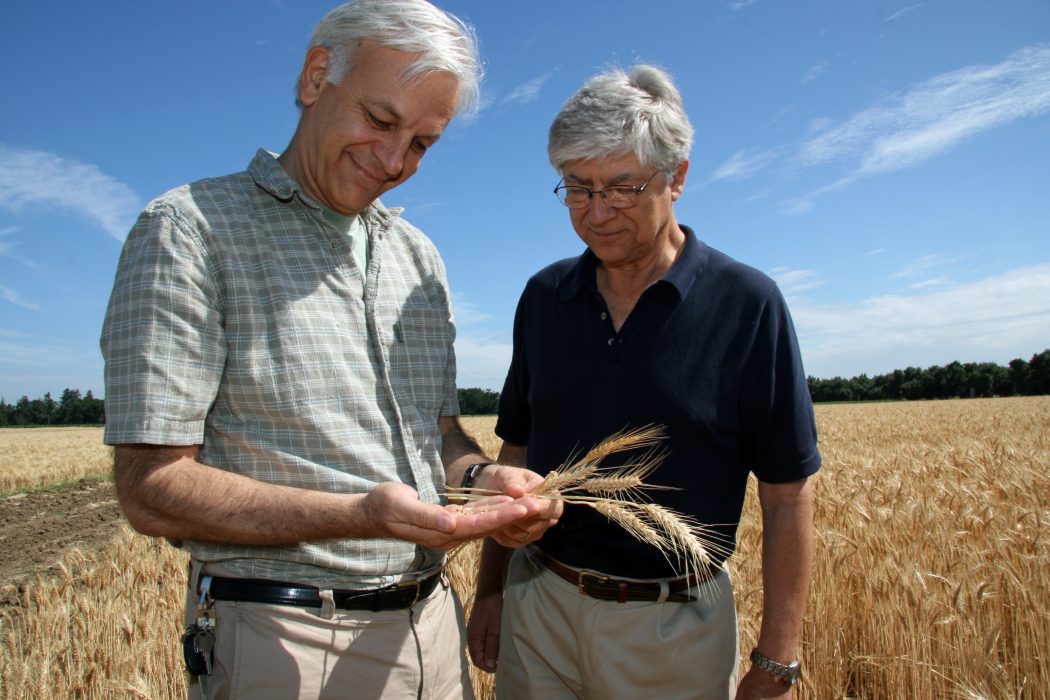
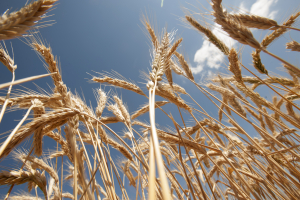 semi-dwarf Hard Red Spring variety, which offers a high-yielding plant and a resulting grain with high protein content and excellent bread-making quality. This variety is resistant to current races of stripe rust disease and is well adapted to the Sacramento, San Joaquin and Imperial Valleys in California.
semi-dwarf Hard Red Spring variety, which offers a high-yielding plant and a resulting grain with high protein content and excellent bread-making quality. This variety is resistant to current races of stripe rust disease and is well adapted to the Sacramento, San Joaquin and Imperial Valleys in California.
